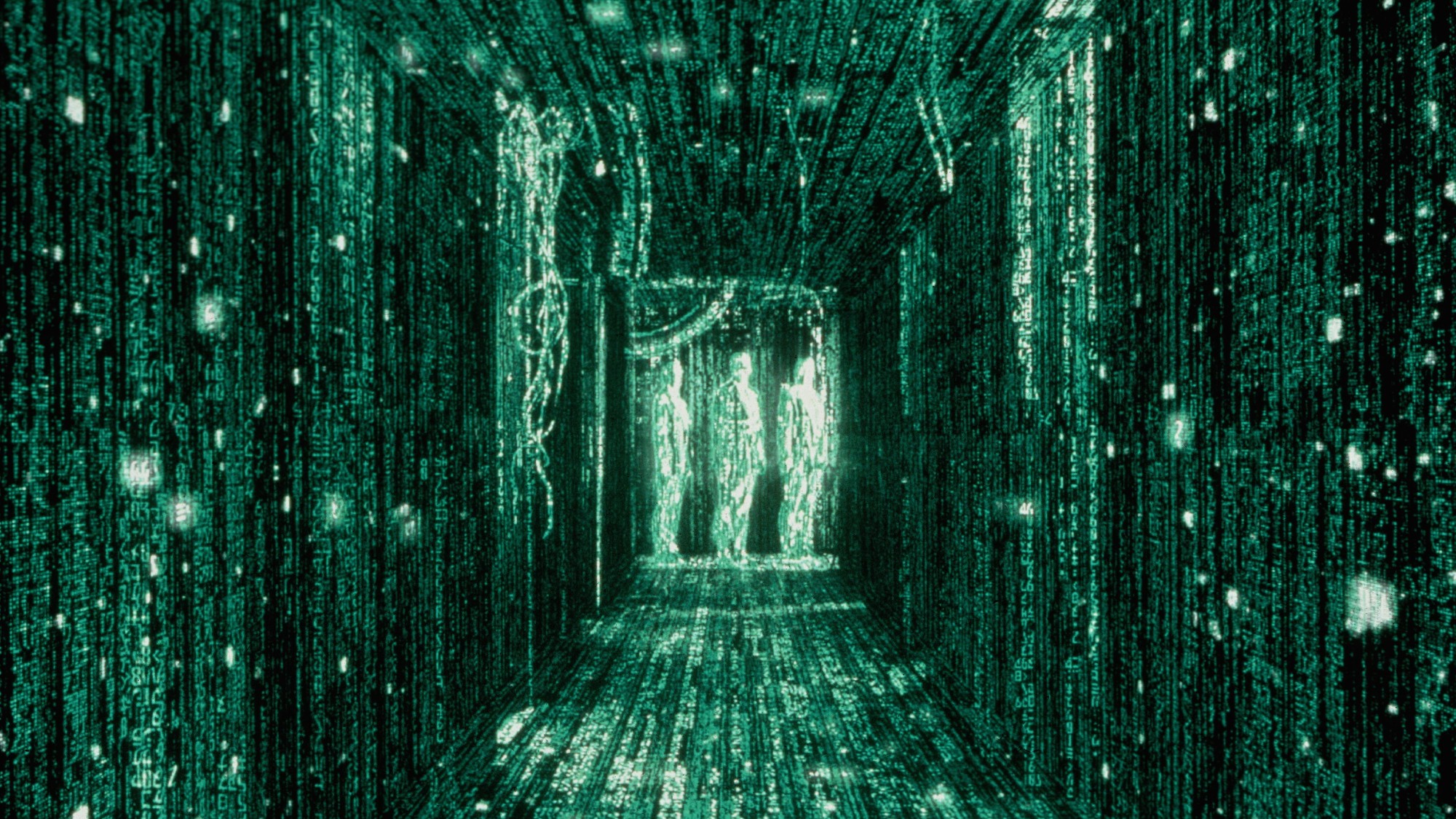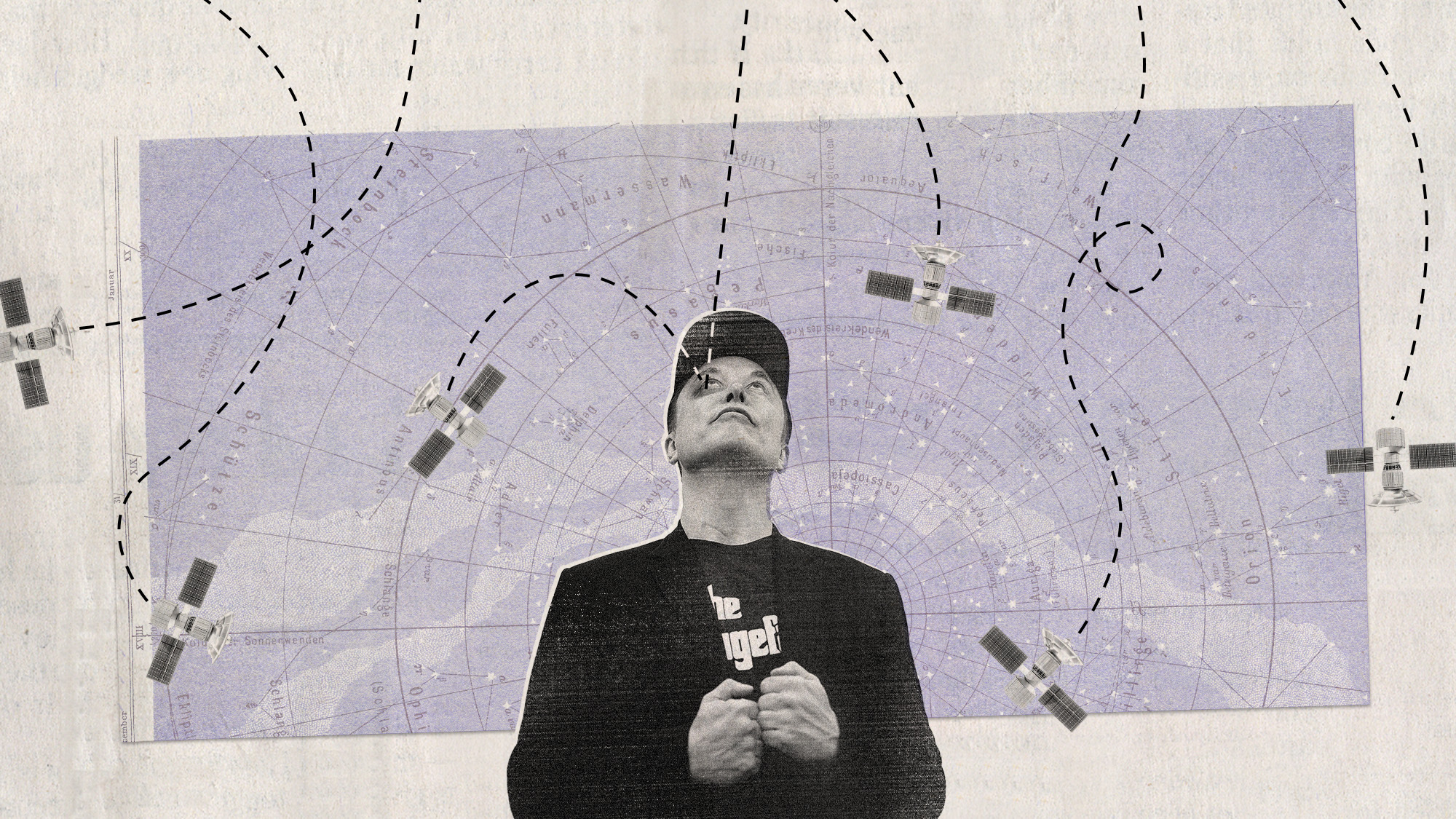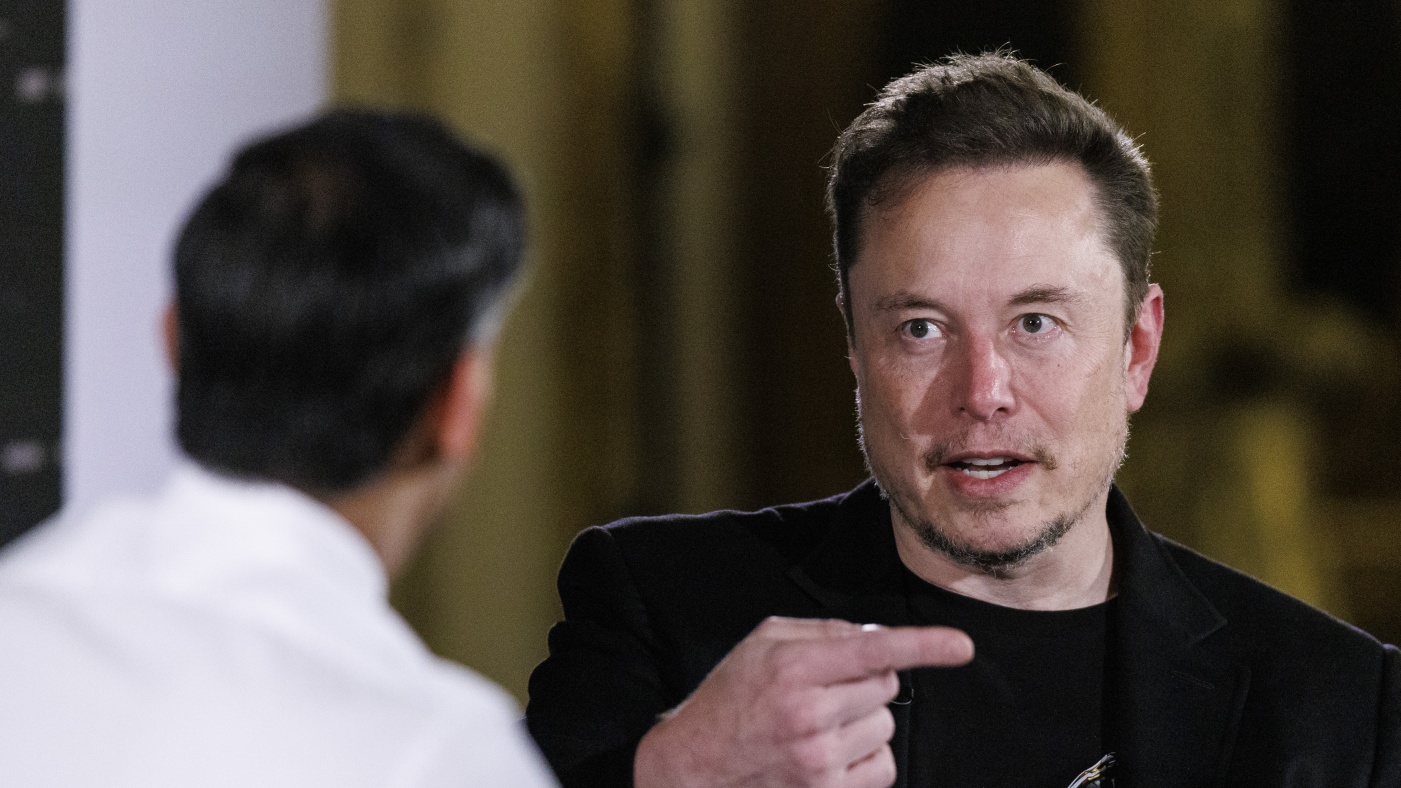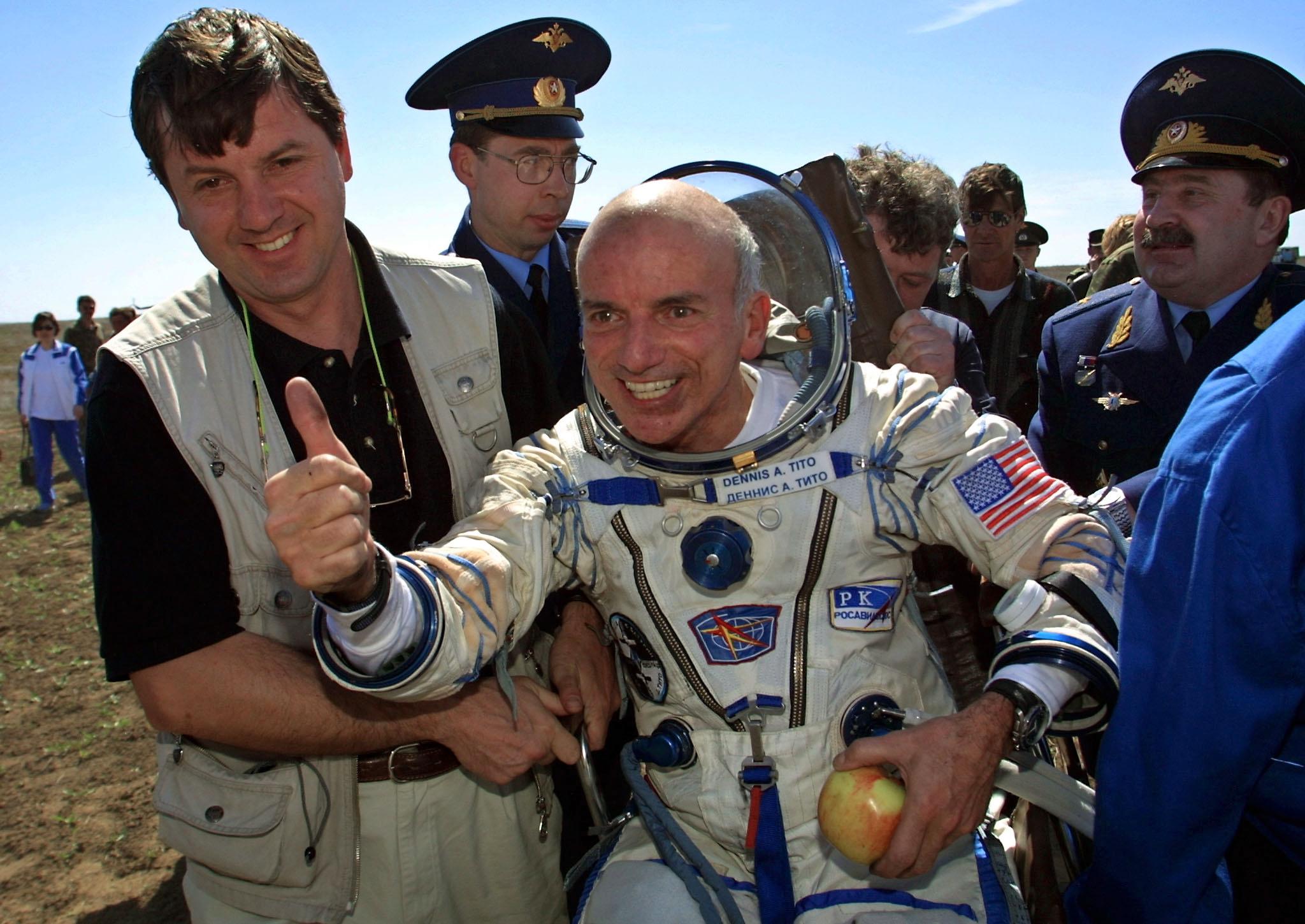Simulation theory: are we all living in The Matrix?
Elon Musk is among many fascinated by the idea that our 'reality' is actually an advanced super-computer simulation

A free daily email with the biggest news stories of the day – and the best features from TheWeek.com
You are now subscribed
Your newsletter sign-up was successful
Is this real life? Is this just fantasy? A growing number of scientists are suggesting that the idea that we are all living in a simulation may not be completely far-fetched.
Simulation theory is the "theoretical hypothesis" that what we perceive as reality "is actually an advanced, hyper-realistic computer simulation, possibly overseen by a higher being", said tech platform BuiltIn.
That may sound a bit like the plot to the 1999 sci-fi film "The Matrix", said Scientific American, but "philosophers, physicists, technologists and, yes, comedians" have been wrestling with the concept of "our reality being a simulacrum" ever since an Oxford University philosopher posited the theory in a "seminal paper" of 2003.
The Week
Escape your echo chamber. Get the facts behind the news, plus analysis from multiple perspectives.

Sign up for The Week's Free Newsletters
From our morning news briefing to a weekly Good News Newsletter, get the best of The Week delivered directly to your inbox.
From our morning news briefing to a weekly Good News Newsletter, get the best of The Week delivered directly to your inbox.
According to one academic, who used Bayesian reasoning to make his calculations, the odds that we are not living in "base reality" but a simulation theory are "about 50-50".
Where did simulation theory come from?
The idea that our understanding of "reality" is limited has deep roots in Western and Eastern philosophical traditions – from Plato's cave allegory to Zhuang Zhou's butterfly dream. But the specifics of simulation theory emerged from that 2003 paper by philosopher Nick Bostrom, now head of Oxford University’s Future of Humanity Institute.
Titled "Are You Living in a Computer Simulation?”, the paper argued that future generations might have mega-computers that could run numerous and detailed simulations of their forebears. The odds are, Bostrom said, that we are products of that simulation and may be "simulated minds rather than among the original biological ones".
His hypothesis has since taken root and been developed further, with New York University techno-philosopher David Chalmers on Serious Science describing the higher being responsible for this potential hyper-realistic simulation as a "programmer in the next universe up".
A free daily email with the biggest news stories of the day – and the best features from TheWeek.com
"[They] may just be a teenager," he said, "hacking on a computer and running five universes in the background". However, "it might be someone who is nonetheless omniscient, all-knowing and all-powerful about our world".
His 2022 book "Reality+: Virtual Worlds and the Problems of Philosophy" is "far and away the most credible articulation of simulation theory to date", said Wired, with "500 pages of immaculately worked-through philosophical positions and propositions, rendered in clean, if rarely shiny, prose".
While the simulation theory hypothesis "cannot be definitively proven or disproven" yet, it remains fascinating to many as it "forces us to reconsider assumptions about the limits of science, technology, and our understanding of the universe," said Earth.com.
Who backs the theory?
Nowadays simulation theorists are a "digitised dime a dozen" said Wired, with Elon Musk undoubtedly their "fearless leader". The owner of SpaceX, Tesla and X has stated that the odds that we are actually living in "base reality" – namely the physical universe – are billions to one. At the end of 2021, he responded to a tweet about the anniversary of the crude tennis video game Pong from 1972 by writing: "49 years later, games are photo-realistic 3D worlds. What does that trend continuing imply about our reality?"
And the idea is also "surprisingly popular among philosophers and even some scientists", said The Guardian.
The claims have been afforded "some credence by repetition by luminaries no less esteemed" than Neil deGrasse Tyson, director of Hayden Planetarium in New York, known as "America's favourite science populariser", said Scientific American.
Is there any evidence to back it up?
Dr Melvin Vopson, from the University of Portsmouth, has claimed recent developments in a branch of science known as information physics – which suggests that physical reality is made up of bits of information – "appear to support this possibility".
According to Indy 100, his previous research proposed that "all elementary particles (the smallest known building blocks in the universe), store information about themselves, much like DNA in humans". His Second Law of Infodynamics stated that "entropy – the degree of randomness or disorder – within an isolated information system either remains constant or decreases over time".
In other words, said the news site, "the system becomes less and less chaotic, implying that there is some kind of mechanism governing it rather than random chance".
In a paper published in 2023, Vopson claimed that the decrease of entropy in information systems over time could prove that the universe has a built-in "data optimisation and compression", which speaks to its digital nature.
"This approach, where excess information is removed, resembles the process of a computer deleting or compressing waste code to save storage space and optimise power consumption." As a result, this "supports the idea that we're living in a simulation".
All of these claims require "significant further testing and verification before even being considered plausible", wrote Darren Orf for Popular Mechanics. Caroline Delbert, writing in the same publication, said Vopson's claims were based on "circular reasoning" and "cherrypicking one very specific measurement".
As IFLScience noted, there are as many research papers refuting our digital existence as there are promoting its scientific inevitability.
It's "possible", therefore, that Vopson's Second Law of Infodynamics "could lead to some interesting discoveries", concluded Orf, "but the question first pondered by Plato remains unanswered".
-
 Political cartoons for February 15
Political cartoons for February 15Cartoons Sunday's political cartoons include political ventriloquism, Europe in the middle, and more
-
 The broken water companies failing England and Wales
The broken water companies failing England and WalesExplainer With rising bills, deteriorating river health and a lack of investment, regulators face an uphill battle to stabilise the industry
-
 A thrilling foodie city in northern Japan
A thrilling foodie city in northern JapanThe Week Recommends The food scene here is ‘unspoilt’ and ‘fun’
-
 SpaceX breaks Starship losing streak in 10th test
SpaceX breaks Starship losing streak in 10th testspeed read The Starship rocket's test flight was largely successful, deploying eight dummy satellites during its hour in space
-
 Why Elon Musk's satellites are 'dropping like flies'
Why Elon Musk's satellites are 'dropping like flies'Under The Radar Fierce solar activity destroying Starlink satellites
-
 Blue Origin conducts 1st test flight of massive rocket
Blue Origin conducts 1st test flight of massive rocketSpeed Read The Jeff Bezos-founded space company conducted a mostly successful test flight of its 320-foot-tall New Glenn rocket
-
 When Rishi met Elon: five things we learned from AI summit
When Rishi met Elon: five things we learned from AI summitThe Explainer AI will put an end to work and we should be wary of Terminator-style robots, says Musk
-
 Why SpaceX is genuinely cheering the Starship test flight's explosive 'rapid unscheduled disassembly'
Why SpaceX is genuinely cheering the Starship test flight's explosive 'rapid unscheduled disassembly'Speed Read
-
 dearMoon billionaire selects DJ, YouTuber, and others for 1st private SpaceX lunar mission
dearMoon billionaire selects DJ, YouTuber, and others for 1st private SpaceX lunar missionSpeed Read
-
 SpaceX launches first Falcon Heavy rocket in 3 years
SpaceX launches first Falcon Heavy rocket in 3 yearsSpeed Read
-
 World's 1st space tourist planning to fly around moon
World's 1st space tourist planning to fly around moonSpeed Read